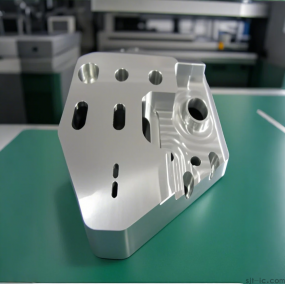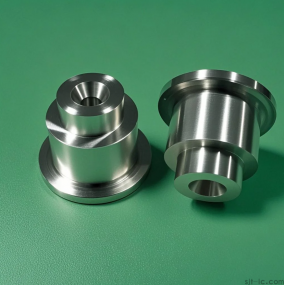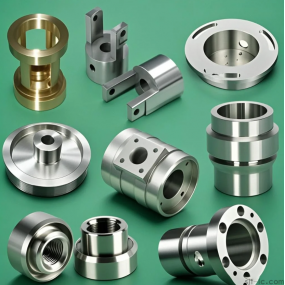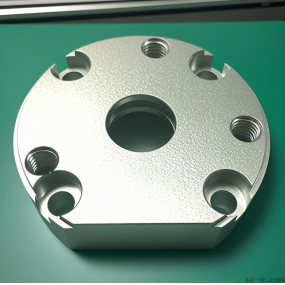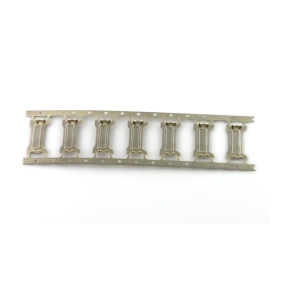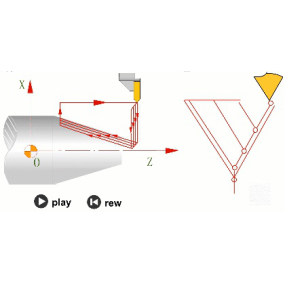Recently, our company has produced a batch of stainless steel castings for foreign customers. The customers have very high requirements for the surface of the castings, which do not allow any water stains or minor scratches. The surface requirements are consistent and very beautiful, and mirror finish or brushed polishing are not allowed.
Because the outer surface area of this product is still relatively large, friends who have made castings know that it is very difficult to not allow any water stains or minor scratches on the surface of large castings.
At the beginning, we used the traditional casting surface treatment process, which involved acid pickling and passivation after shot blasting, followed by ultrasonic cleaning, and immediately wiping off water stains with alcohol after drying. However, on the one hand, the efficiency was too low, and on the other hand, it was difficult to ensure that the casting surface was free of any water stains.
The customer later suggested that we use sandblasting technology, but the sandblasting process did not pass the salt spray test. We also suggested using the electrolytic polishing process, but the customer's technical department rejected it.
We thought of many ways and finally used magnetic polishing technology to achieve the desired effect for the customer.
The following photo shows a comparison of the products before and after magnetic polishing. It can be clearly seen that after magnetic polishing, the surface quality of the castings is significantly higher than that of traditional castings
Introduction to Magnetic Polishing: Magnetic polishing is an advanced metal surface treatment technology that uses high-speed rotating steel needles or fine steel balls to polish the metal surface.
The core principle of magnetic polishing is to use electromagnetic force to suspend steel needles or balls in a liquid medium, and to rotate them at high speed through a magnetic field generated by an electric current. This rotational motion can effectively impact the metal surface, remove oxide layers, dirt, and other impurities, thereby achieving a polishing effect. Compared with traditional mechanical polishing, magnetic polishing has a more uniform polishing effect and higher efficiency.
Magnetic polishing has obvious advantages:
Efficiency: Magnetic polishing can complete polishing work in a short period of time, greatly improving production efficiency. Uniformity: Due to the free movement of steel needles or balls, the polishing effect is more uniform, avoiding the local wear that may occur in traditional polishing methods. Wide applicability: This technology is suitable for various materials, including stainless steel, aluminum alloys, etc., and can effectively handle workpieces with complex shapes. After personal experience, we believe that magnetic polishing products are still very suitable for stainless steel casting products, which greatly improves the appearance quality of castings and can be applied to heavier castings.
Especially suitable for industries such as healthcare and electronics that have high requirements for castings.
Our company has the capability of stainless steel casting and precision machining, and can produce high standard and high demand stainless steel castings for customers.



 Spanish
Spanish Arabic
Arabic French
French Portuguese
Portuguese Belarusian
Belarusian Japanese
Japanese Russian
Russian Malay
Malay Icelandic
Icelandic Bulgarian
Bulgarian Azerbaijani
Azerbaijani Estonian
Estonian Irish
Irish Polish
Polish Persian
Persian Boolean
Boolean Danish
Danish German
German Filipino
Filipino Finnish
Finnish Korean
Korean Dutch
Dutch Galician
Galician Catalan
Catalan Czech
Czech Croatian
Croatian Latin
Latin Latvian
Latvian Romanian
Romanian Maltese
Maltese Macedonian
Macedonian Norwegian
Norwegian Swedish
Swedish Serbian
Serbian Slovak
Slovak Slovenian
Slovenian Swahili
Swahili Thai
Thai Turkish
Turkish Welsh
Welsh Urdu
Urdu Ukrainian
Ukrainian Greek
Greek Hungarian
Hungarian Italian
Italian Yiddish
Yiddish Indonesian
Indonesian Vietnamese
Vietnamese Haitian Creole
Haitian Creole Spanish Basque
Spanish Basque

